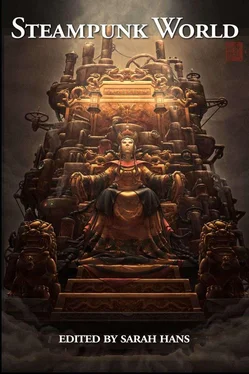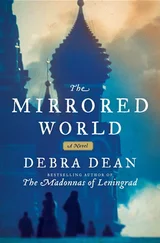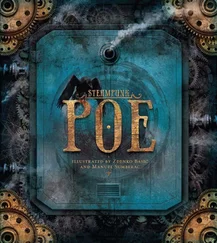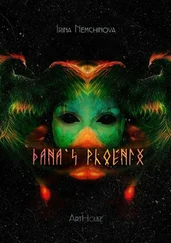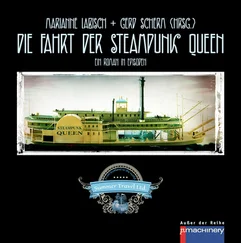“Bring me the leader,” he said.
Shang’s men pushed an old man, his hands bound tightly before him, out of the crowd and to his knees before the warlord. Like the rest of these vermin, the elder wore a long loin cloth, and his dark, reddish skin was painted with elaborate designs. Some of them were smeared where he’d been manhandled.
Shang glared down at him and said, “You speak my language, I understand.”
The old man nodded. “A sailor from your people lived with my family for years. He washed up here and we gave him shelter. He lived and died as one of us.”
“That’s lucky. Otherwise, I’d have no use for you. What’s your name, old man?”
“Arto.”
“I want you to tell your people what I say to you, Arto.”
“I think you’ve made yourself clear,” the old man said.
Shang slapped him hard, and he fell to the dirt. The other tribal men, bound painfully and tightly together, glared at Shang but kept silent. They had been completely unprepared for the attack, so secure in their isolation that they had weapons only useful for hunting birds. The battle had taken mere minutes.
“I am Shang. I am a warrior, and you are either allies or enemies.” Then to the old man, he barked, “Tell them!”
Arto rose painfully to his knees and repeated the words in his own language.
“We have no intention of staying on this miserable island any longer than necessary. We will repair our ship, fill it with food and water, and then return to civilization. While we are here, you are our slaves. Some of you will resist, but I’m not speaking to them right now. To the ones sensible enough to understand your new roles, I will only say this once: disobey or hesitate when I give you an order, and I will castrate you. Do it a second time, I will take your tongue. A third time, your eyes.” He smiled as the old man relayed the information, and enjoyed the change in the prisoners’ faces.
One young man, clearly the defiant kind, said something. The warlord looked at Arto, who said, “He asks how many times they must fail before you kill them.”
“I won’t,” Shang said. “I’ll just keep lopping off pieces of you until you cease to amuse me.”
Arto translated, and the men looked even more terrified.
Shang continued, “Soon we will return to our kingdom, and some of you will come with us. The strongest men…and the most beautiful women. The rest of you, if you’re lucky, may remain here with your lives. If you cause us difficulty, I will leave this island a smoking husk. That is your only warning.”
The men cowered away from Shang, and pressed tightly together. A couple of them began to cry.
The warlord shook his head. He despised men who blubbered like women or children. “Whip them,” he said to one of his men. “Give them something to cry about.”
As his commands were obeyed, Teng joined him and said, “They won’t make warriors.”
“Perhaps not, but we can use their muscles just the same. And the wombs of their women will produce a fresh generation, one we can teach in the ways of the sword. I expect the belly of every woman in that hut to swell with our seed. Am I clear?”
“As the sky after a storm,” Teng said.
“That’s my father,” Rito whispered. She was thirteen years old, tall for her age but still thin and wiry with youth. She hunched in the bushes at the edge of the village and watched the stranger whip the men where they knelt. Her father had been the one who asked when they would be killed.
“My father is in there, too,” her best friend Eru said. He was twelve, shorter, muscular, and yet preferred to practice painting on rocks rather than play any games or learn the skills of the hunter. Rito was far better versed in the tasks adults would need, but their friendship survived despite this; their parents assumed they would one day marry.
“And our mothers and sisters are in that hut, waiting to be taken,” Rito hissed angrily. Her fists clenched in fury. “I would rather die trying to rescue them than watch that happen.”
“If you rush in there like a silly furo bird, then you’ll get your wish,” Eru said. “Or you’ll be forced to join them.”
“So we should just do nothing, then?” she almost yelled.
“Quiet! If they hear us, they’ll come after us, and we have no weapons to kill anything bigger than a dakulo.” He held up the little stone knife he used to carve figures from wood. “This is all I have. Do you have anything?”
Rito shook with the effort of controlling her anger. She knew Eru was right. She blinked away the hot tears that burned their way from her eyes with every distant crack of the whip.
At last, the whipping stopped. The bound men lay on the ground, bloodied and whimpering. No one moved to help them. In fact, the invaders laughed. From within the hut women sobbed, and the children too small to run away cried as they sensed their mothers’ terror.
Rito could barely contain her rage. Only the certainty that she’d be cut down within moments of showing herself kept her from charging out of her hiding place. Then she felt Eru’s hand on her shoulder.
“We have to get away from here,” he said into her ear.
“I can’t—”
“I have something important to tell you, but not here.”
She turned and looked into his eyes. They were dark and kind, without the arrogance of the other boys. Eru had never done stupid things to impress her, the way the rest had done; he’d never attempted to steal a kiss or watched her bathe from the jungle shadows. Perhaps for that reason, Rito never really thought of him as a boy, just as her friend, despite her parents’ knowing smiles and chuckles. But now there was a stern determination in his eyes, a new glimmer of manhood. She nodded.
One of Shang’s men caught a hint of movement, and strode over to jab a spear into the bushes where they’d been hiding. When nothing emerged or cried out in pain, he rejoined the others.
The two youngsters moved through the jungle without making a sound, leaving the village behind and climbing the slight hills that formed the ridge separating the jungle from the beach. When they were safely over it, huddled against the rocks and with the open plain and beach before them, she said, “All right, we can talk now. What’s so important?”
“Rito…” Eru said, then trailed off. He looked guilty and uncertain, as if he had a secret.
“What?” she said.
“There might be…something we can do.”
“What do you mean?”
“I sort of…well…discovered something a while ago. I haven’t told anyone.”
“Is this the right time to bring this up?” she almost yelled. All their lives, Eru had been “discovering” things, from whale bones on the beach to the secret nests of the okoluchika.
“Oh, it definitely is,” he assured her. “Do you remember the stories we were told as children about the omai?”
Rito’s head snapped around and she gazed at the statues across the plain, lined up at the edge of the sand. It was considered bad luck at best, curse-worthy at worst, for anyone but the elders to speak of their gods. “I remember we shouldn’t talk about them.”
“But the stories? How they came down from the skies, destroyed the evil beings who first lived here and brought us into existence? Remember those?”
“Of course, I do! But Eru, what does this have to do with—”
“Didn’t you ever wonder how that could be true? They’re just rocks, right? Just images carved by our ancestors.”
“Eru!”
“But I mean, they are. I’ve touched them. I’ve struck them, and nothing happened.”
Rito grabbed him and gestured back toward their village. “Maybe this is what happened, you idiot! Maybe you brought down the wrath of the gods on us!”
Читать дальше
